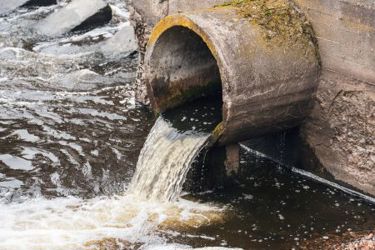Water News. April 2025
US/Mexico Water Treaty at a Standoff
Drought is preventing both the US and Mexico from fulfilling obligations of the 1944 Colorado River water treaty. Water Online.
Shocking Amounts of Raw Sewage Are Being Released into England’s Waterways
In a new report released in April, the UK’s Environment Agency (EA) revealed a staggering figure: water companies released raw sewage into England’s waterways for 3.61 million hours in 2024. While some spilling is legal, scientists are raising alarms about the potential danger to the public.
“These figures are disgraceful and are a stark reminder of how years of underinvestment have led to water companies discharging unacceptable levels of sewage into our rivers, lakes, and seas,” said Environment Secretary Steve Reed, per BBC News.
Due to the UK’s combined sewer system, both rainwater and wastewater are carried in the same pipes. Wastewater is usually treated at a sewage treatment works, but during heavy rainfall, the sewage works are at risk of being inundated. To prevent backups to the system, which could allow sewage into homes and streets, the excess flow goes straight into waterways. Water Online.
Utah Bans Fluoridation of Water
Utah has become the first US state to ban the decades-old practice of adding fluoride to public water supplies, due in part to a mix of health concerns about the practice. Utah Gov. Spencer Cox signed the new law, prohibiting fluoridation starting May 7. The move comes amid growing scrutiny of the practice, which started in the 1940s as a strategy to help people prevent cavities and reduce tooth decay.
Though more than 70% of the US population receives fluoridated public water supplies and many medical professionals support the practice, opposition has been growing due to studies suggesting fluoride may have neurotoxic effects on fetuses and young children. New Lede
The World’s Most Beautiful Sewage Treatment Plant
A stunning new sewage treatment plant in Arklow in Ireland has been described as the most beautiful in the world. Full story with pictures in The Guardian.
Big Tech’s Plans To Suck Water from the Nation’s Driest Regions
Amazon, Microsoft and Google are operating datacentres that use vast amounts of water in some of the world’s driest areas and are building many more.
With Donald Trump pledging to support them, the three technology giants are planning hundreds of datacentres in the US and across the globe, with a potentially huge impact on populations already living with water scarcity.
“The question of water is going to become crucial,” said Lorena Jaume-Palasí, founder of the Ethical Tech Society. “Resilience from a resource perspective is going to be very difficult for those communities.”
Efforts by Amazon, the world’s largest online retailer, to mitigate its water use have sparked opposition from inside the company with one of its own sustainability experts warning that its plans are “not ethical”.
In response to questions from SourceMaterial and the Guardian, spokespeople for Amazon and Google defended their developments, saying they always take water scarcity into account. Microsoft declined to provide a comment.
2024 Was A Record-Setting Year
The devastating impacts of the climate crisis reached new heights in 2024, with scores of unprecedented heatwaves, floods and storms across the globe, according to the UN’s World Meteorological Organization. The WMO’s report on 2024, the hottest year on record, sets out a trail of destruction from extreme weather. The Guardian
The Mississippi Tops the List of America’s Most Endangered Rivers
The Mississippi River ranks as the nation’s most endangered river as federal plans to cut flood relief programs meet with a rise in severe weather, a new report warns.
American Rivers, a nonprofit environmental advocacy organization, said the threats to the Mississippi River – which provides water for nearly 20 million people – come as communities along the lower river flooded from torrential rain in early April, and as Trump administration officials consider eliminating the Federal Emergency Management Agency (FEMA), which helps state and local governments respond to disasters. New Lede.






